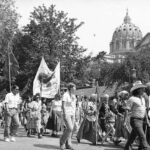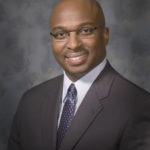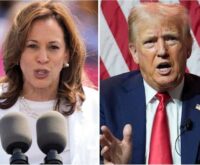DENVER (AP) _ Colorado students and teachers are protesting a school board’s attempt to change the new way some history college prep classes are being taught and tested.
For years, high school teachers have complained that Advanced Placement history classes _ electives which are meant to help high school students prepare for college_ were more focused on helping students memorize facts and pass the test to earn college credit than actually preparing them to go to college. A group of teachers and professors rewrote the guidelines, and this is the first year they are being used in schools across the country. The questions are broad and are meant to get students to think critically.
Critics say the new framework is so broad that it omits important historical figures like Benjamin Franklin and Martin Luther King, Jr. and events like the Boston Tea Party.
Here are examples from the College Board of questions on the old and new test:
BEFORE:
The Northwest Ordinances did which of the following
_Provided for the annexation of the Oregon Territory
_Established reservations for Native Americans
_C. Granted settlers a free homestead of 160 acres
_Established the terms for settlement and admission of the new states
_Banned slavery north of the 36 30′ line
(Answer: D)
AFTER:
“(H)istory and experience prove that foreign influence is one of the most baneful foes of republican government. Excessive partiality for one foreign nation and excessive dislike of another cause those whom they actuate to see danger only on one side and serve to veil and even second the arts of influence on the other. The great rule of conduct for us, in regard to foreign nations, is in extending our commercial relations to have them as little political connection as possible. So far as we have already formed engagements, let them be fulfilled with perfect good faith. Here let us stop. Europe has a set of primary interests which to us have none, or a very remote relation. Hence she must be engaged in frequent controversies, the cause of which are essentially foreign to our concerns.” – George Washington, Farewell Address, 1796
_ The concerns expressed by Washington were a response to the:
_Debate over the proper treatment of American Indian tribes in the trans-Appalachian West
_Dispute over the possibility of annexing Canada from Great Britain
_Controversy regarding support for the revolutionary government of France
_Conflict with Great Britain over the treatment of American loyalists
(Answer: C)
_ The ideas expressed in Washington’s address most strongly influenced which United States foreign policy decision in the twentieth century?
_The establishment of the United Nations in 1945
_The formation of the NATO alliance between the United States and Western Europe in 1949
_The refusal to join the League of Nations in 1919
_The oil embargo against Japan in 1941
(Answer: C)
BEFORE:
The National Organization for Women (NOW) was founded in 1966 in order to:
_Challenge sex discrimination in the workplace
_Oppose the proposed Equal Rights Amendment
_Advocate restrictions on access to abortion
_Advocate equal access for women to athletic facilities
(Answer: A)
AFTER:
Using your knowledge of United States history, answer parts a and b.
a) Briefly explain why ONE of the following periods best represents the beginning of a democracy in the United States. Provide at least ONE piece of evidence from the period to
support your explanation.
. Rise of political parties in the 1790s
. Development of voluntary organizations to promote social reforms between the 1820s
and the 1840s
. Emergence of the Democrats and the Whigs as political parties in the 1830s
b) Briefly explain why ONE of the other options is not as persuasive as the one you chose.
___
Source: College Board FAQ’s with sample questions:
Get the facts about the Advanced Placement U.S. History redesign.











